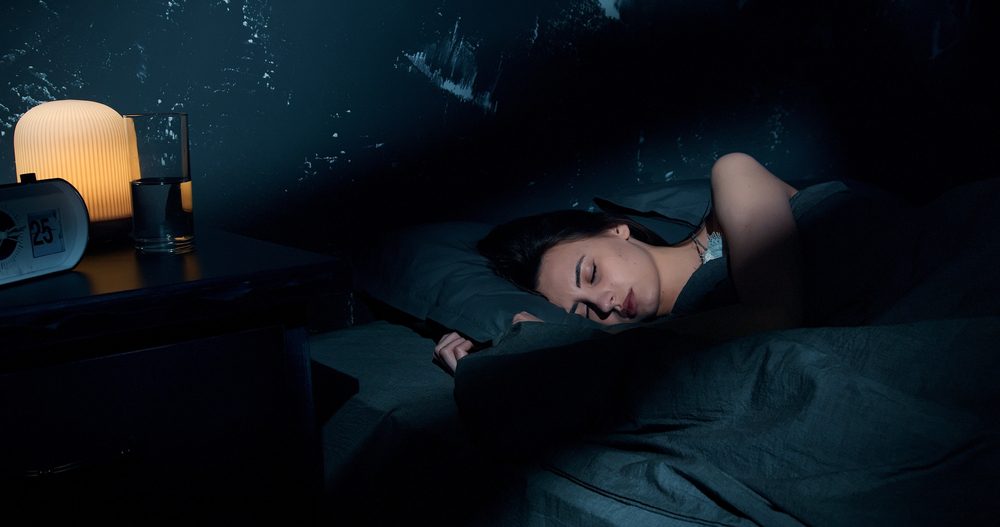Here’s how To React to A Deceased Loved One Visiting You in Your Dreams:
It might feel a bit unsettling and supernatural to dream of a deceased loved one. It can also make it seem as if you’ve had a visit from the other side, which is definitely exhilarating, confusing, and even scary.
In most cases, it’s not even something we understand, given that the entire notion of deceased loved ones visiting us in the dream world must have another scientific or medical explanation.
When we lose someone we love, the stages of grief we might experience could also lead to such dreams. Visitation dreams can even provide comfort and healing to the bereaved. Moreover, they can be a window to the possibility of life after death and spirit communication.
Moreover, if you are the one who has to take care of the deceased loved one’s ceremony and affairs, it might be even harder to handle the emotional and technical aspects of their unfinished business.
We also have a post-loss checklist that might help you ensure that your loved one’s family, estate, and other affairs are well taken care of.

Visitation dreams
Visitation dreams are generally dreams in which a deceased loved one appears in front of you. They receive this name because they are so vivid that you could easily confuse them for a visit from that person’s spirit.
These dreams could help you cope with your grief, loss, and even sorrow. But science still hasn’t found a way to quantify such dreams. Generally, they are attributed to issues related to brain chemistry and derailed sleep cycles.
As science hasn’t yet found a valid explanation and other religious and spiritual texts can only refer to them in parables, nobody from the medical community decided to take visitation dreams too seriously.
Instead, medicine generally leaves it up to parapsychologists and ghost hunters to offer some sort of meaning. At the same time, psychologists and grief counselors see dreams where your deceased loved ones communicate with you in a completely different manner.
While they’re not necessarily messages from the other side, they are still validation of your personal grief. The famous psychologist Carl Jung coined the term “big “dreams” to describe experiences such as visitation dreams.
He strongly believed in his years of research that when someone dreams of their deceased loved one, it’s nothing but a reflection of someone’s insight into different spiritual levels. Jung generally separates these episodes of profound significance from typical “little dreams.”
So how can you tell?
Some psychologists who have worked with lots of patients having visitation dreams agree on one thing: there are very specific characteristics attributed to such dreams.
Their notes regarding the commonalities in these dreams aren’t necessarily part of a formal study. Instead, they are more observations of many different encounters as reported by patients. Here are some of the most important characteristics:
- They feel very real.
- They seem genuine and authentic.
- Your deceased loved one visits you.
- They come with a purpose.
- They convey very clear messages.
- They are often reassuring and calming.
- They can warn of danger.
- They are comforting.
- They leave you feeling peaceful.
- You feel as if you really met with your loved one.
Why do we have such “visitation dreams”?
None of us really know why we have these visitation dreams. Some people might view them as a sign of deceased loved ones. Some believe that your loved ones use your relaxed state of consciousness during sleep as a way into your subconscious mind because it’s easier to communicate with you.
However, psychology sees these dreams as a coping mechanism in which the mind creates different scenarios to help cope with the pain and sorrow of grief.
How to cope with visitation dreams
At times, a bereaved person could feel distressed when they have such visitation dreams. If you want to know how to cope with them, try to regulate your emotions and keep a continuing bond with your loved one (by doing an activity or a hobby that you shared together).
Don’t be afraid.
As a general rule, there’s really no need to fear seeing a deceased loved one in your dreams. In fact, these dreams are meant to bring a soothing, positive feeling. However, it might be a completely different situation in the wake of a loved one’s traumatic death.
In such circumstances, you could repeatedly relive all the unpleasant details of that death. And it won’t feel any different whether you’re in the realm of dreams or in real life. Your dreams could vividly reenact the manner in which you lost your loved one, or at least stir the waters.
The desire to avoid these experiences is completely understandable. If you are still afraid of repeatedly going through the same traumatic event of losing a loved one, you could consult a grief counselor.
Treat it as a gift.
Visitation dreams don’t really happen to everyone. At times, a person could be yearning to meet with their deceased loved one, but they could never get them to visit in their dreams.
Others who might not want to get a certain visit from the other side could repeatedly dream of their deceased loved ones. Even if it seems uncomfortable, you could see it as a gift that could stop at any time.

Seek counseling
When you have visitation dreams but they become increasingly disturbing or you simply can’t make sense of why you’re dreaming about a deceased loved one, you might want to find a counselor who specializes in grief counseling or even a psychologist trained in dream interpretation.
They could easily walk you through some of the main reasons why this could be happening and even bring more clarity to the situation.
You could try continuing bond therapy.
If you haven’t heard of it, continuing bond therapy is a specific form of grief therapy that allows you to keep the bond with your deceased loved one even after their death. This specific type of treatment could help you when the passing is simply unbearable, especially if we’re talking about a child or a spouse.
Continuing bond therapy was initially introduced in 1996 in a book known as “Continuing Bonds: Another View of Grief.” It went against the traditional grief and bereavement model of treating grief by forcing the person to detach from their deceased loved one.
Practice guided meditation.
Guided meditation helps you plan out your dreams way ahead of time, so you won’t be surprised by them. When you learn to control what you’re dreaming about, you will have less dream anxiety and will be able to face these types of dream visitations.
Guided meditation generally starts with setting aside time to sit quietly and contemplate the lost one. As you focus on breathing, you need to allow your thoughts to go through all the memories of your loved one.
You can even practice recalling what they looked like, what they felt like, and even how they smelled. Once you’re in a relaxed state of mind, just guide your subconscious into your dream state with beautiful memories shared with your loved one. Here’s a video that might help you start your journey into guided meditation!
I hope you got the answers you were looking for. If you want to read other articles on the same subject, here’s what we recommend: There Is a Tarot Card for All 12 Zodiac Signs. Here’s Yours












